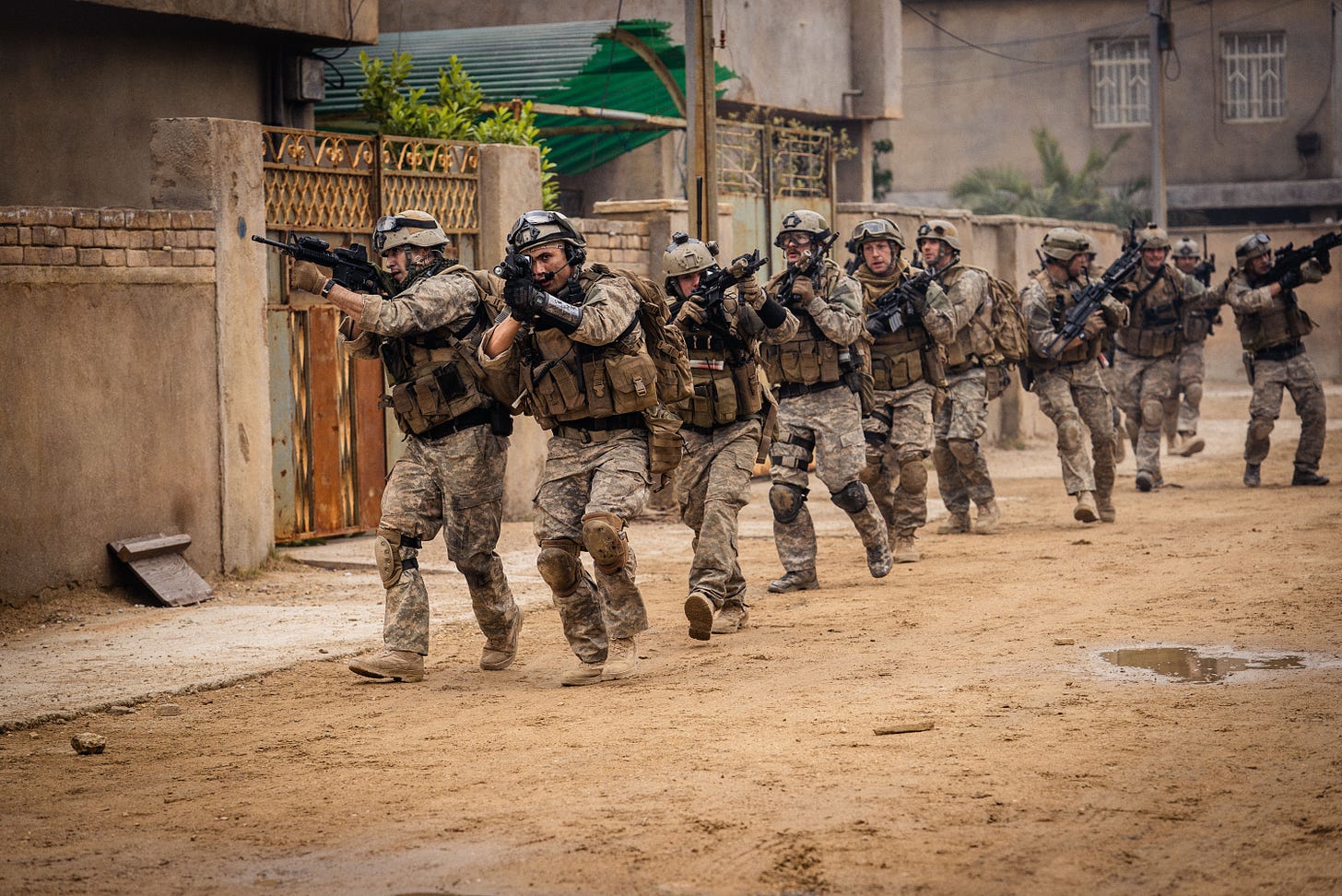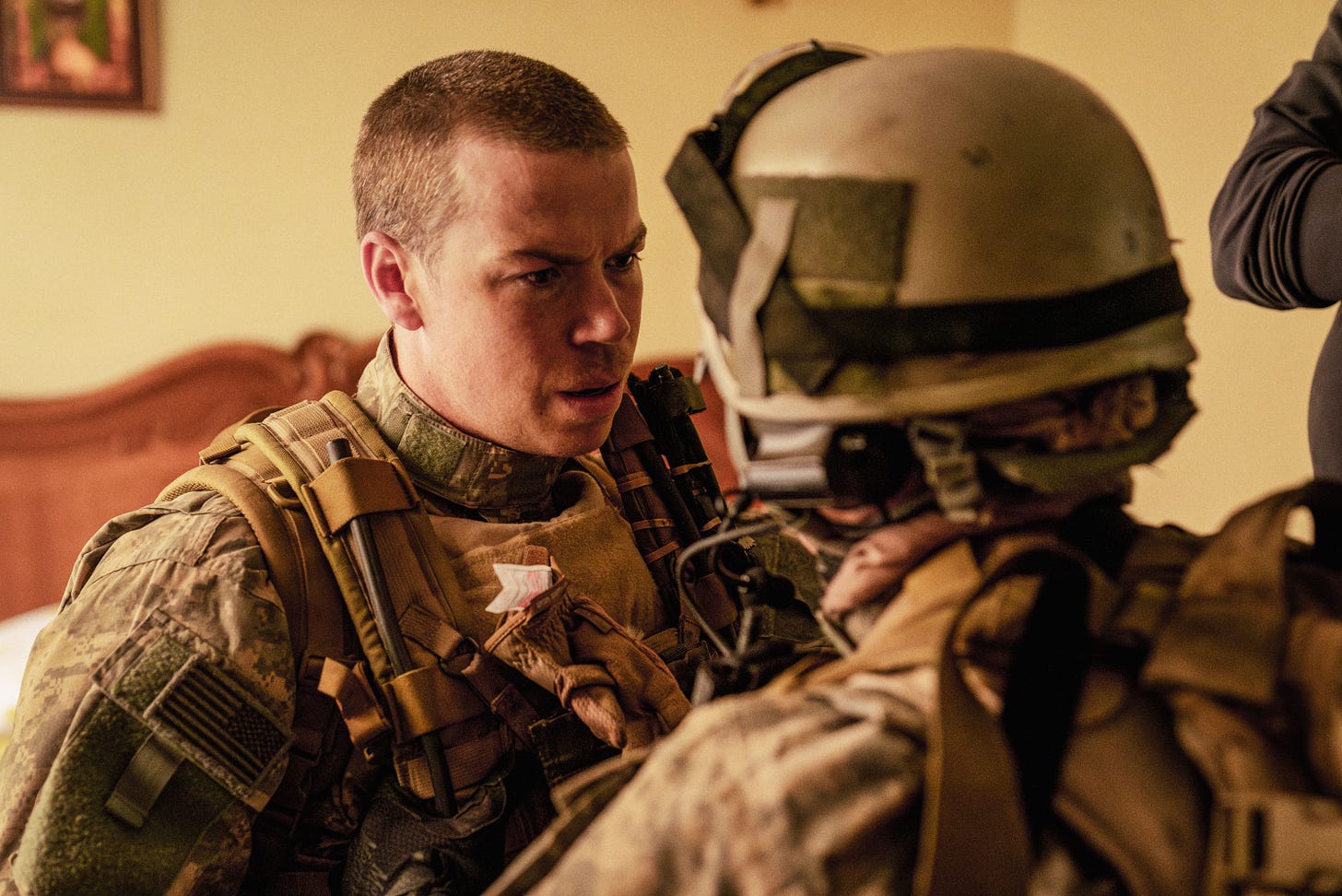‘Warfare’ is an Iraq War film unlike any other
Filmmaker Alex Garland and war veteran Ryan Mendoza have teamed up on an immersive, extremely intense film about an urban battle in the Iraq War.
Director Alex Garland’s film a year ago, Civil War, had its virtues, but a lot of people couldn’t get past its somewhat baffling conceit, about an American Civil War in which the politics were kept vague, nonsensical, and at a far remove from anything resembling the real scene today.
There's no remove to speak of in Warfare, Garland’s new film. It’s an up-close, extremely immersive story about a specific urban battle in 2006, during the Iraq War. In the battle, a group of Navy SEALs are trapped in an apartment complex with some of them wounded, and it’s not exactly easy to get out, since they’re surrounded by hostile soldiers, including on the roof of the building they’re in.
It’s just very, very different from most people’s conception of what a war movie is, mostly in a good way.
The film, co-directed and co-written by Iraq War veteran Ray Mendoza, is told nearly in real-time. Based on a battle that Mendoza himself (played by Reservation Dogs veteran D'Pharaoh Woon-A-Tai) participated in, and based on the memories of himself and his colleagues, the film is nerve-wracking as hell.
Warfare begins, amusingly, with the SEALs watching a video, with leotard-clad models dancing to “Call on Me,” in a way that resembles Sue’s’ exercise show from The Substance.
But after that, Warfare is intensely focused on the battle itself. There’s no time for chit-chat, or much character development about anything besides the soldiers’ direct roles in the mission. We don’t see them before or after their time in Iraq, and we don’t hear a lot about the characters’ pre-war backstories.
The film, as is usually the case with Garland’s work, looks great, and is filmed coherently. Unlike so many filmmakers these days, Garland and Mendoza don't confuse “chaos” with “incoherence.” The film is set in a relatively small area, and does a decent job keeping that space straight.
And, much like Civil War, there’s not much politics. If you’re looking for, say, a statement about how immoral and ill-advised the Iraq War itself was, and how these men had no reason to be in that building, or that country, in the first place, it’s not there in the text, although while you watch the film, you may be thinking it.
But a movie that stopped in its tracks for five minutes for the characters to talk about Dick Cheney and Donald Rumsfeld would not have been this movie.
The cast, consisting mostly of up-and-coming young actors, is impressive. Will Poulter is probably the most familiar face. Charles Melton, from May/December, gives one of those performances where an actor enters the film and just takes it over.
Cosmo Jarvis, Joseph Quinn and Noah Centineo are all the sort of actors who are decent in the film, although I had to look up what I’ve seen them in before. And I didn’t even recognize Michael Gandolfini, even though I once met him.
It’s not the best Iraq War movie- that’s still The Hurt Locker. But Warfare is solidly in the second tier.
A footnote: After my screening, I overheard a guy in the theater say “if you’re looking for a similar movie, from the same time period, check out Jarhead.” Not only is Jarhead not even set during the same war, but it’s practically the opposite, in that it’s set before the Gulf War started, and almost nothing happens. I’m sure the characters in Warfare would have loved an experience as “boring” as Jarhead.





